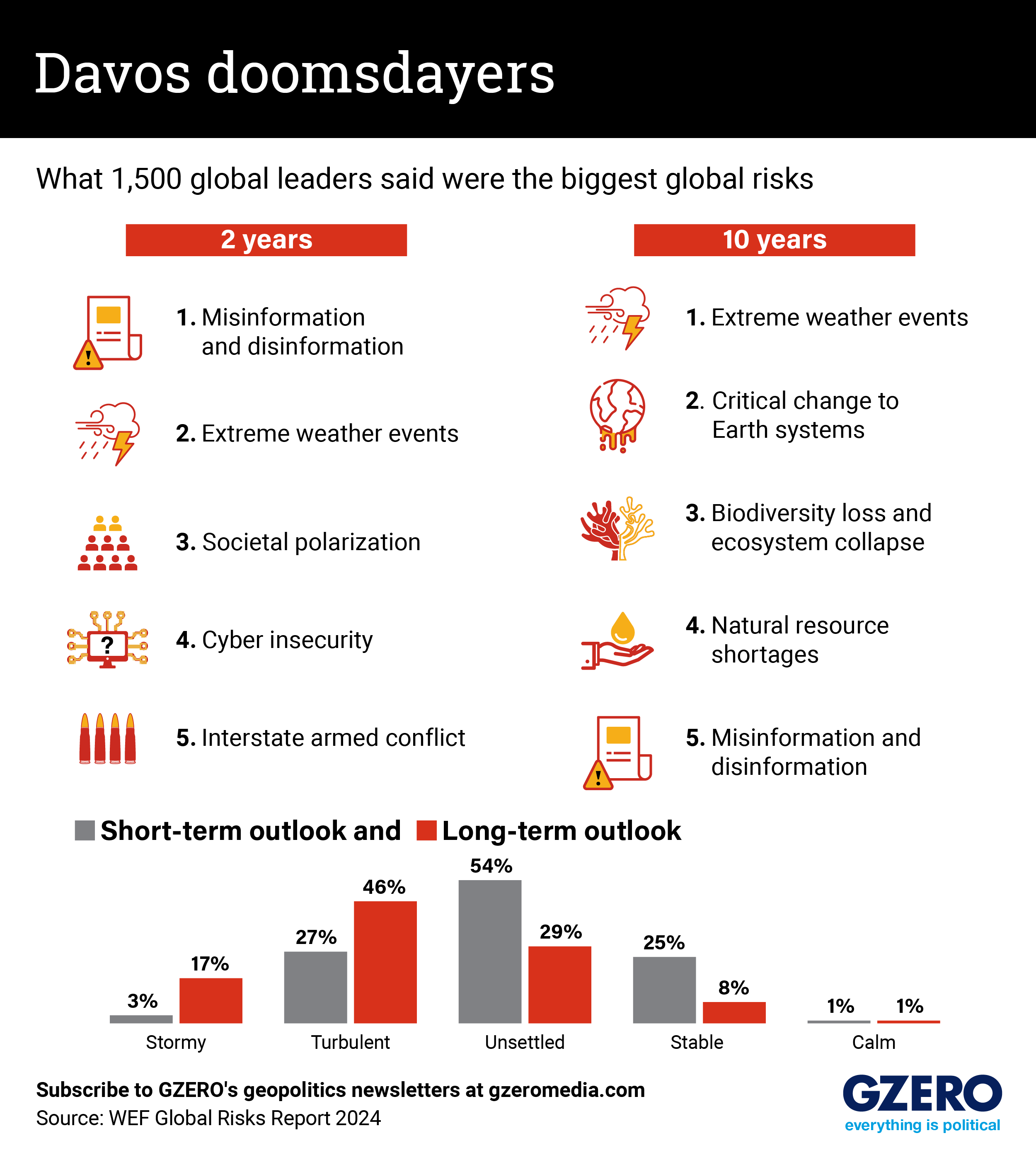January 19, 2024
The World Economic Forum asked 1,490 experts from the worlds of academia, business, and government, as well as the international community and civil society to assess the evolving global risk landscape.
These leaders hailed from 113 different countries and the results show a deteriorating global outlook over the next 10 years, with the number of people who responded that the “global catastrophic risks [are] looming” jumping from 3% over the next 2 years to 17% over the next 10.
But after a year of lethal conflicts from Gaza and Ukraine to Sudan, record-breaking heat, with both droughts and wildfires, and polarization on the rise, can you blame them for being worried?
More For You
- YouTube
Is Trump permanently redefining the American presidency? On Ian Explains, Ian Bremmer breaks down the political revolution President Trump has launched from the White House.
Most Popular
Think you know what's going on around the world? Here's your chance to prove it.
Pro-government supporters holding a Venezuela's flag attend a rally against U.S President Donald Trump in Caracas, Venezuela August 14, 2017.
REUTERS/Ueslei Marcelino
When they meet at the White House today, Venezuelan opposition leader and Nobel Peace Prize winner María Corina Machado will seek to convince US President Donald Trump that it was a mistake to back Delcy Rodríguez as interim leader of Venezuela.
© 2025 GZERO Media. All Rights Reserved | A Eurasia Group media company.
